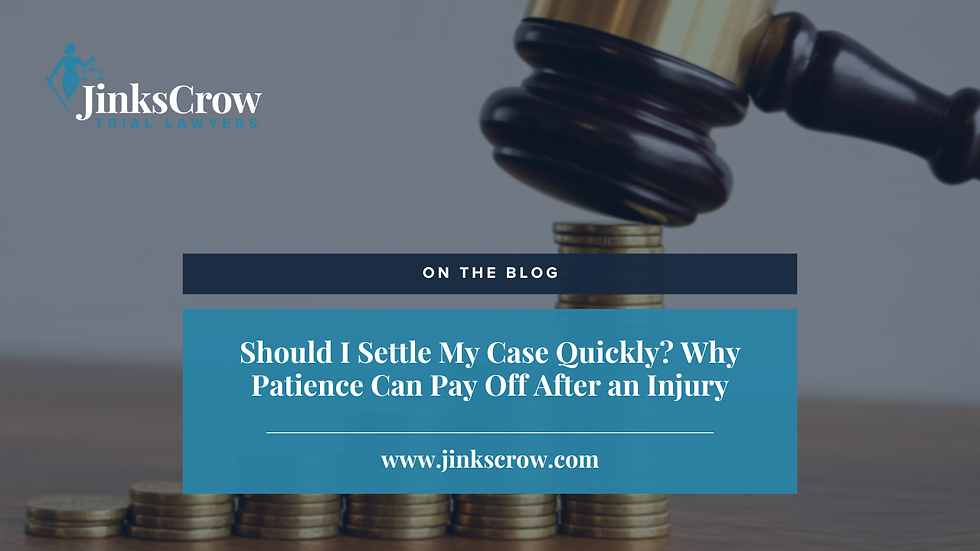What Medical Conditions Can Be Caused by Car Accidents?
- Jinks Crow

- Jun 22, 2023
- 2 min read

Accidents can cause a wide variety of medical conditions, such as broken bones, contusions, abrasions, sprains, strains, and the pain accompanying them. But there are many medical conditions that do not immediately manifest themselves and others that are caused by pre-existing conditions made worse by the accident.
The law allows a victim of negligence to recover for all personal injuries caused by an accident. Even if the medical condition is caused by making an existing injury worse, there is still recovery for it. In other words, if the accident causes an existing condition to be made worse, you can still recover from it. And, if the accident wouldn’t have caused any physical injury if that condition didn’t exist, you can still recover from it. The law says that the person who is injured comes as they are, and you are responsible for damages done to them.
The law refers to this as the “eggshell skull” rule. It means that if someone has a condition that causes their skull to be very thin or fragile, then if you cause them injury – even injury that was not foreseeable or wouldn’t have been experienced by one with a normal skull – you are liable for those injuries. One of the earliest cases to recognize this rule in the United States involved a boy who kicked another boy at school. The kick would not have caused an injury to a healthy boy. But this boy had an existing infection which was made worse by the kick resulting in the boy losing his leg.
There are medical conditions that do not occur immediately after an accident. Even if they appear later, if they were caused by the accident, or would not have occurred but for the accident, then the person causing the accident can be held responsible.
Some of these medical conditions which are made worse by an accident, or which do not appear immediately include:
Scoliosis
Sciatica
Arthritis
Spinal stenosis
Hernia
Stroke
Degenerative disc disease
Bulging disc
Concussion
Seizures
Vertigo
Fibromyalgia
Nerve damage
These are great examples of why someone injured in an accident should not sign anything until the extent of their injuries is known. Insurance companies often want to hurry and close their files to limit their liability. They will send a check but also want a release signed. Once a release is signed, the at-fault party isn’t responsible for future injuries or damages that develop.
%20Proof%20%235.png)








Car accidents can lead to a range of medical conditions, from minor injuries like whiplash to more severe issues such as traumatic brain injuries, spinal cord damage, and internal organ injuries. It's essential to seek immediate medical attention after an accident, as some conditions may not show symptoms right away but can have long-term effects on your health. In the event that you require the services of a knowledgeable car accident lawyer to help you handle your legal matters, we encourage you to connect with us here: https://www.thewilsonpc.com/areas-we-serve/savannah-ga/car-accident-lawyer/